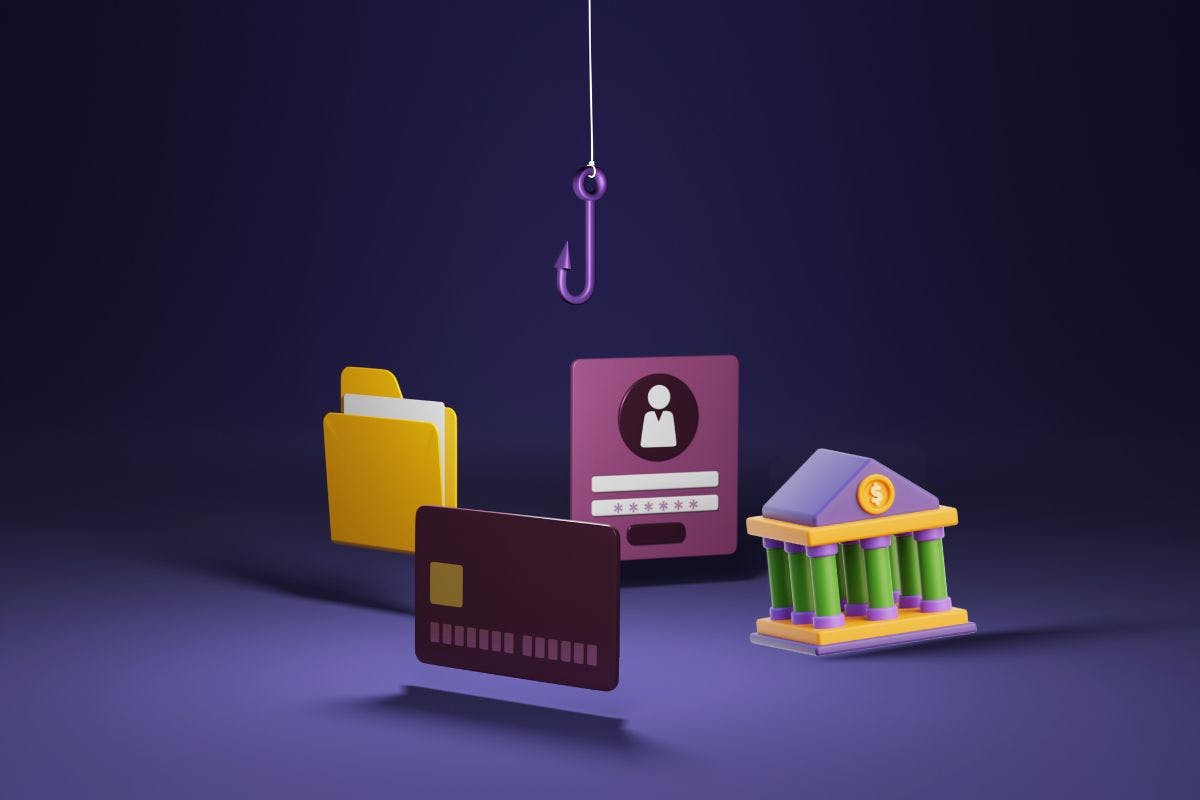How Credit Card Updater Services Are Betraying Our Trust
By Heidi Unrau | Published on 22 Feb 2024

Credit card updater services are the reason I have trust issues. When your credit card information changes, these programs send your new card details to merchants on your behalf. But you probably have no idea it’s happening. Sure, it prevents service interruptions if your card expires. And you don’t have to update all your subscriptions manually when a new card is issued. But it benefits merchants more than consumers. And there are major drawbacks that leave a bad taste in my mouth, like unnecessary charges and risk exposure. Let’s explore the double-edged sword of credit card updater services.
What is a Credit Card Updater Service?
A credit card updater service is a system used by merchants to automatically update and maintain their customer’s payment card information. That means if your card is expired, lost, or stolen, the new card information can automatically be shared with your recurring billers on your behalf, behind the scenes.
Yes, It’s Legal
To be fair, your card information is not being shared entirely without your consent, even though it feels like it. These programs are disclosed but usually buried deep in the fine print of your card agreement.
You Can’t Opt In, But You Can Opt Out
Banks and other credit card issuers don’t give you the choice to opt in. It’s an automatic feature of the card, so you’re forced into it. But the good news is that you can opt out. Call the number on the back of your credit card and ask to be removed from the credit card updater program.
You may have to be assertive or ask to be escalated to someone with more authority. Not all customer service representatives are familiar with these services, so you need to stay patient and be clear about your request.
How Do Credit Card Updater Services Work?
Say your card is about to expire, or you’ve reported it lost. Your bank issues a new card. Then your bank informs the relevant card updater service (Visa, Mastercard, or Amex) about your new card details.
The credit card updater service then notifies businesses with whom you have recurring payments set up – like your cell phone company, streaming services, or online subscriptions. Alternatively, a business might request this information from the credit card updater service instead of just receiving it automatically.
The next time these businesses charge your card, they use the updated details. You keep binge-watching Griselda without interruption, and your payments continue as if nothing changed. In most cases, you won’t even know that it happened – or that the program even exists.
Don’t Worry, It’s Not a Free-For-All
Merchants have to subscribe to these credit card updater services. But the subscription isn’t free – they have to pay for it. And it’s mostly used by subscription-based businesses and some utility companies with recurring monthly payments. Also, only merchants that you already do business with can access that information. They have to show that you have an account with them when they sign up.
Which Credit Card Companies Offer Updater Services?
All three major credit companies in Canada offer this service: Visa, Mastercard, and American Express. But the exact card details they can share with merchants depend on the information received from card issuers, like banks and other financial institutions.
For example, your bank might share your new credit card number with the card updater service if the old one was lost or stolen. Other banks might only share the new expiry date when an expired card is replaced, but not the details of new cards that have been issued as a result of loss, theft, or fraud.
I have two Mastercards, a Canadian Tire Triangle Mastercard and a PC Financial Mastercard. I called each issuer to ask about credit card updater services.
Canadian Tire Bank told me that they only share the new expiry date when an expired card is replaced because the 16-digit card number doesn’t change. However, if my card was reported lost or stolen, they will not share the new card’s details with the updater service. I would have to update all my billing accounts myself. PC Financial told me the same thing about my PC Mastercard.
I was pleasantly surprised to find that each credit card company provides some information about its card updater service, but I did have to go digging for it. And the info is marketing copy intended to convert merchants into customers of the program. Below is the name of each service and more information about how that particular program works:
Visa: Visa Account Updater (VAU), automatically sends updated information to the merchant
Mastercard: Automatic Billing Updater (ABU), merchants can request updated information as needed or choose automatic updates.
American Express: Amex Card Refresher, automatically sends updated information to the merchant.
Which Merchants Subscribe to Card Updater Services?
All the obvious ones, like Netflix, Spotify, Hello Fresh and more. And chances are, if they subscribe to one credit card updater service, they’re likely subscribed to all of them. After considerable time scouring the internet, I was able to find some participating merchant lists posted by a few American banks.
Interestingly, I found no such lists published by any Canadian banks. This likely has to do with differences in disclosure laws, but I can’t say for sure.
To find out if any of your subscription or streaming services are using a credit card updater service, you can search the pdf files below. Use the CTRL + F function to search by company name.
The Visa Account Updater Merchant Participation list as of 2022.
The List of Participating Merchants MasterCard Automatic Billing Updater, date unknown.
I was not able to find a list of participating merchants for the American Express Cardrefesher service.
The Benefits For You
For many of us, these services are like having a personal assistant who remembers to update your card details for you. You don’t have to worry about remembering every service you’re subscribed to and sink time into updating each one manually.
Credit card updater services can also act as a sort of seatbelt for your credit score. They help catch potential issues before they result in a declined transaction. This can avoid past-due accounts and missed payments on your credit report, which can hurt your credit score.
And of course, the most obvious benefit is that your services will not be interrupted. Everything is done behind the scenes for a seamless experience.
The Benefits For Businesses
Merchants are willing to pay for an account updater service because the fee is a worthwhile investment – it helps protect their bottom line.
Credit card updater services are a financial boon for merchants and credit card payment networks alike. The most obvious benefit is maintaining a steady revenue stream for businesses by avoiding failed transactions. That kind of income stability is crucial for consistent cash flow.
Not to mention, it’s basically a passive revenue stream for Visa, Mastercard, and American Express. They make easy money by charging merchants for the privilege of accessing your card information.
It also cuts down administrative costs. As someone who used to work in accounts receivable, I can totally appreciate that the cost savings are a significant draw. Chasing customers for updated payment information can be time-consuming, and those labour hours aren’t cheap.
Another obvious benefit is customer retention. The ability to quickly access your new card information prevents accounts from being cancelled or not renewed, so they retain more users. Zero friction makes for a happy customer. This continuity is crucial for businesses with recurring revenue models, like streaming and subscription services.
Risks to Consumers from Credit Card Updater Services
Sure, there are some undeniable benefits for us. But, in my opinion, there are even more risks. As a former banking-sider turned financial literacy activist, here’s what I hate about credit card updater services:
Loss of control
Credit card updater services pose a significant loss of control over your subscription and streaming services. This can result in the unintentional renewal of subscriptions you no longer use or need. If you forget about some services or assume the billing will stop when your card expires, you’re at risk of unnecessary charges.
It can also make it a lot harder to switch service providers or cancel subscriptions. Automatic updates don’t just keep the service active, it creates extra steps for you to cancel. That’s disempowering. Not to mention, highly exploitative of people with certain disabilities – like me and my struggle with severe ADHD.
Unconscious spending
The seamless, automatic nature of these services creates financial complacency. You’re likely to be less mindful of your spending habits because the act of purchasing is disconnected from your physical behaviour. Unexpected renewals can disrupt your budget and derail your financial plans.
This happened to me with several subscriptions I forgot about (because, ADHD!). I chose to pay the annual cost upfront and then eventually lost interest in the service or forgot about it. They automatically renewed, costing me over $2,000 combined. I may or may not have cried.
Reduced financial literacy
I’m also concerned about our general over-reliance on automation. The less we do for ourselves, the more vulnerable we become. Credit card update services contribute to financial illiteracy because you aren’t aware it’s happening. That means you probably don’t know what your rights are or how to opt-out.
Unnecessary risk exposure
Credit card updater services transmit your payment information to multiple parties. This creates all kinds of additional weak spots where your information could be stolen or mishandled. Data hacks and security breaches have hit almost every major company, including CapitalOne, Equifax, JP Morgan Chase, Google, Facebook, and countless more.
Given the subpar track record of companies that should have stellar security infrastructure in place, I cannot get on board with exposing consumers to unnecessary risk. Our privacy and financial well-being are compromised in favour of corporate interests, yet again.
